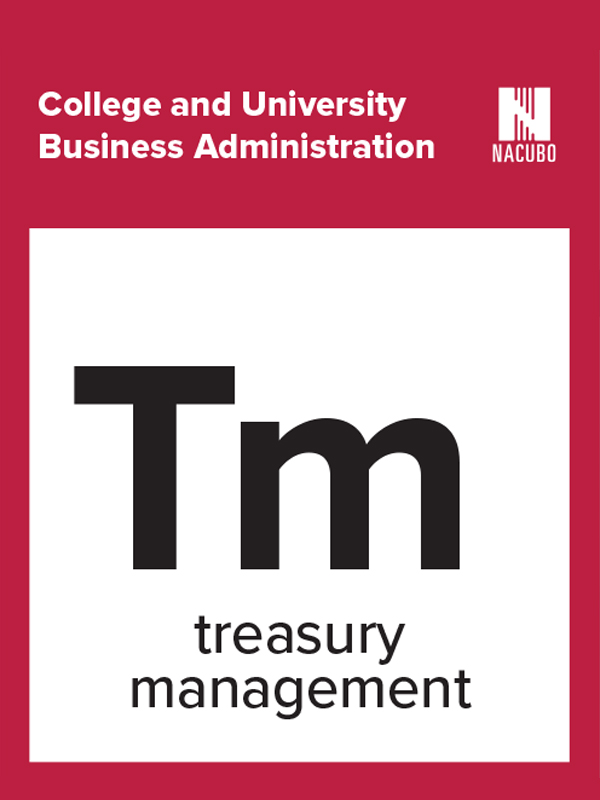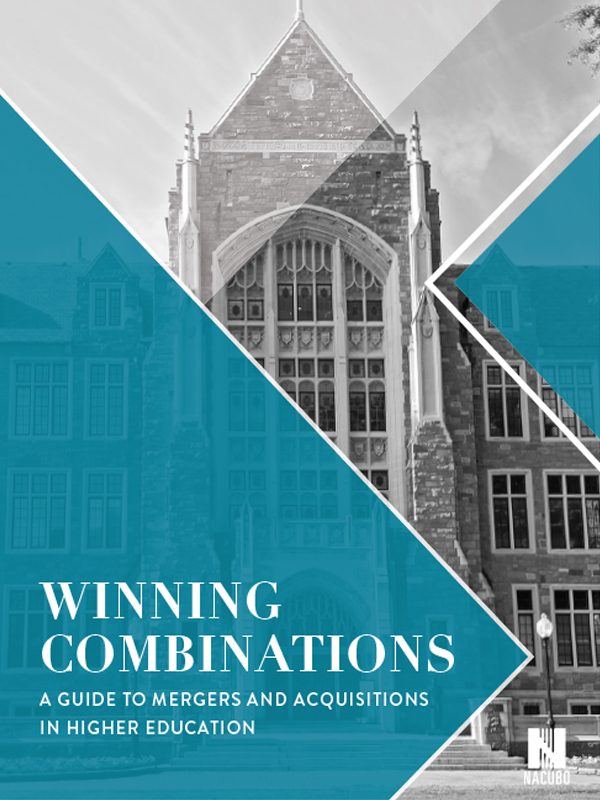These immersive and interactive preconference workshops have been designed for new and future business officers.
New Business Officers Program
An annual, two-day preconference event planned for July 12–13, the New Business Officers (NBO) program is designed to provide resources, information, and guidance to those new to the chief business officer role within a higher education setting. This immersive workshop covers relevant issues—from the strategic to tactical—to ensure success for every new chief business officer. NBO participants from member institutions are also eligible to participate in NACUBO’s yearlong mentoring program, created to support new chief business officers in achieving continued professional success.
Throughout this two-day experience, participants will have the opportunity to engage with experts and peers in the industry and discuss the nuances of the chief business officer role. An NBO participant from the 2018 class commented, “This was such a great experience and gave me newfound energy to use on campus and at work with my team.” Another participant from the 2018 class shared, “I am so glad that I took the time out of my very busy schedule to come to this conference. It is well worth it.”
An optional webcast session will be offered on June 26, for those chief business officers who are not only new to their role, but also new to the campus setting. This session will include best practices on navigating higher education culture, along with emerging issues and trends affecting the industry. (Supported by Ellucian)
Future Business Officers Program
“I would highly recommend this program to others contemplating this career path, as this workshop offered a lot of insights,” said one of the 2018 Future Business Officers (FBO) program attendees.
This year’s FBO program, to be held on July 13, is a one-day program designed for business office staff members ready to gain the leadership skills and organizational perspectives necessary for becoming a chief business officer. Attendees will gain an understanding of the complex role and responsibilities of the chief business officer position through interactions with seasoned business officers and other higher education leaders. In addition, participants will learn the importance of building peer networks within the higher education environment and will begin to develop a personal plan of action to prepare for a move to the next career level. (Supported by TIAA)
Attendees at either program will earn CPE credits and do not need to register for the annual meeting to attend the workshops. For more information, visit www.nacuboannualmeeting.org.
To hear how public institutions are preparing for new accounting standards and learn the latest tuition discounting strategies private, nonprofit institutions are implementing, consider viewing one of these on-demand webcasts.
- Prepare for GASB 87. In June 2017, the Governmental Accounting Standards Board (GASB) released a new lease accounting standard (Statement 87) that will be effective FY21 for most public colleges and universities. It is critical for public institutions to plan now for contracts that are considered leases, as defined by the new standard, to be reflected on the statement of net position. In the webcast Countdown to Compliance: How Public Universities Can Effectively Prepare for GASB 87, accounting experts explained the new standard and explored the resulting effects for which universities must be prepared.
- Tuition discounting study. Average tuition discount rates at private, nonprofit institutions continue to reach record levels, according to NACUBO’s annual tuition discounting study (TDS). Rising costs of student scholarships and grants have led to much lower gains in net tuition revenue. As discounting continues to rise, campus leaders are considering new strategies for achieving their enrollment and net tuition revenue goals in more financially sustainable ways. During the webcast Reconsidering Tuition Discounting Strategies, panelists—including a campus chief business officer, chief enrollment officer, and industry consultant—provided an overview of the 2018 NACUBO TDS; described the tuition discounting strategies implemented by private, nonprofit colleges and universities to increase net tuition revenue; and discussed the complex factors that inform new tuition discounting, enrollment, and financial aid strategies.
To view on-demand recordings or to register for upcoming webcasts, visit the NACUBO website and click on the “Conferences & E-Learning” tab, and then click “E-Learning.”
NACUBO is committed to providing you with the latest, most impactful research and information to help you and your organization excel. To learn more about NACUBO’s full range of products and to place your orders, visit products.nacubo.org.
2018 Tuition Discounting Study From NACUBO

The annual NACUBO tuition discounting study (TDS) measures tuition discount rates and other indicators of institutional grant awards to undergraduates attending private, nonprofit (independent) colleges and universities. The 2018 NACUBO Tuition Discounting Study— based on survey responses from 405 private, nonprofit NACUBO-member institutions—reports final institutional discount rates for academic year 2017–18 and preliminary estimates for academic year 2018–19.
Other indicators included in the report are: percentage of undergraduates receiving institutional grants; average institutional grant awards as a percentage of tuition and fee prices; changes in net tuition revenue; total undergraduate institutional grant aid funded by endowment earnings; and percentage of institutional grants that meet students’ demonstrated financial need.
The 2018 tuition discounting study is supported by EAB and is available online in the NACUBO Research section of products.nacubo.org.
Understanding the Treasury Function

An effective treasury management program ensures that money is in the right place in the right amount at the right time. Its processes range from the moment a need for cash is established until an application for disbursement is satisfied and also ensure that funds are available quickly and move securely and economically.
Learn more about this function in “Treasury Management,” the latest chapter of NACUBO’s College and University Business Administration and written by Dubos J. Masson. Free to NACUBO members, this resource can be found in the Complimentary NACUBO Member Resources section of products.nacubo.org.
New Resource on Mergers and Acquisitions

Winning Combinations: A Guide to Mergers and Acquisitions in Higher Education taps into the expertise of more than a dozen leaders in higher education who have initiated, observed, facilitated, participated in, contributed to, and analyzed all types of mergers, acquisitions, and consolidations: public/public, private/private, public/private, public/for-profit, and private/for-profit.
Breaking free of the typical textbook or manual model, this NACUBO guide is full of real-life examples from higher education leaders who candidly share their thoughts, opinions, and observations about the mergers and acquisitions process—plus some valuable lessons learned while completing their mergers and acquisitions transactions. Each chapter concludes with several key questions for acquiring institutions and merging institutions to consider.
This book is available for preorder and will ship June 28, 2019.





